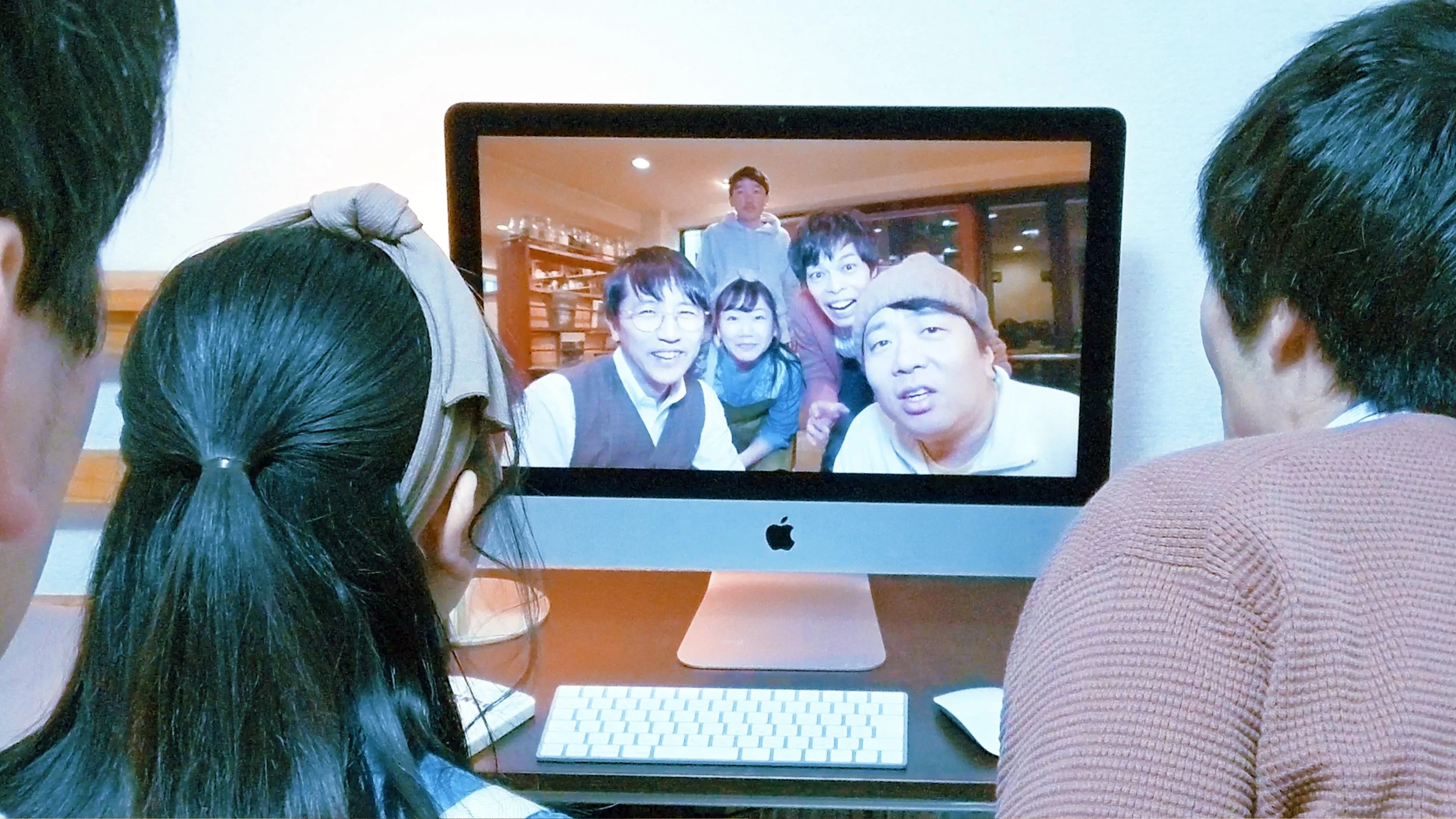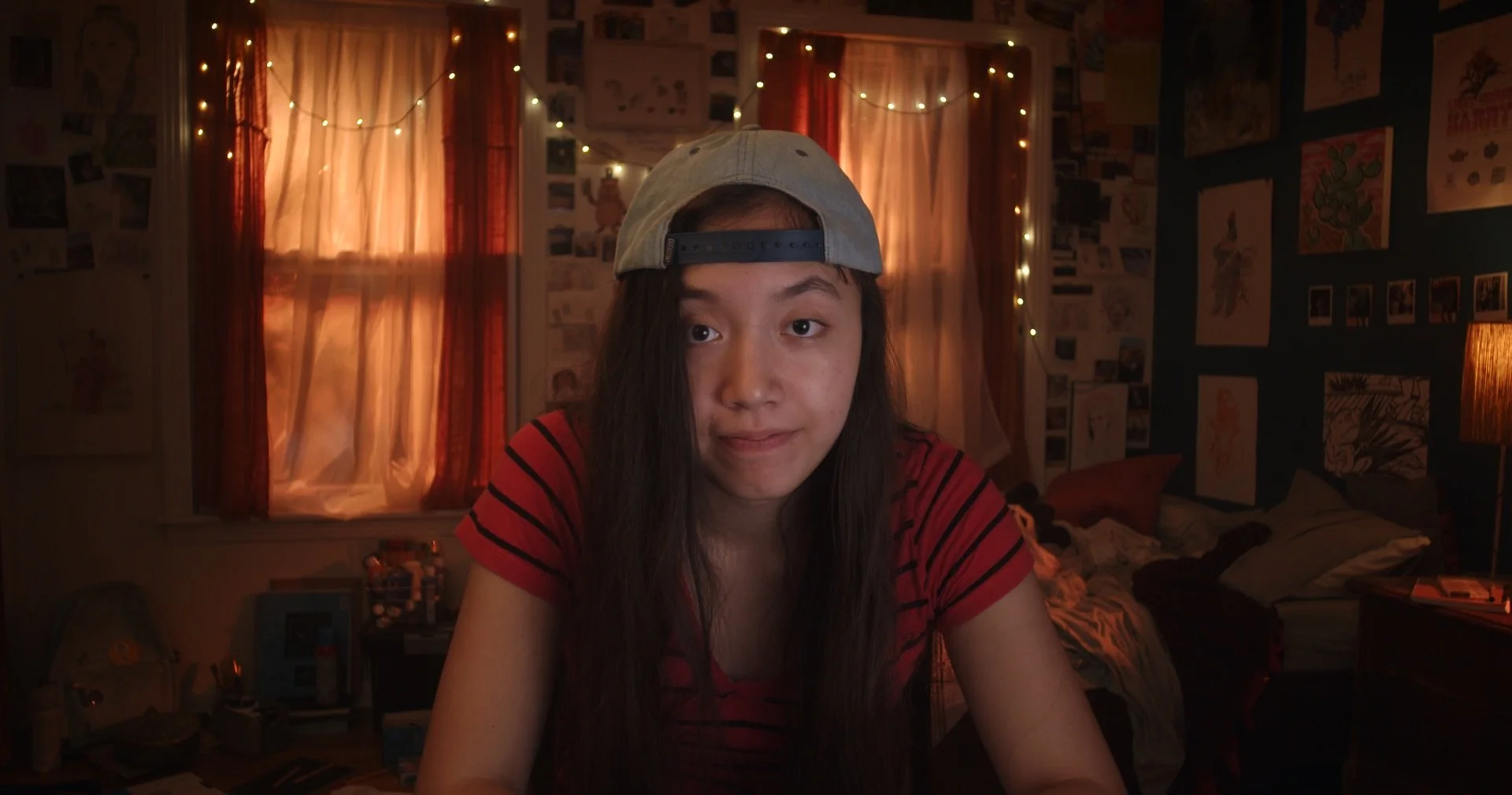Reel Asian Festival turns 25: Best title! Best time travel story! And much, much more!
By Liam Lacey
The Reel Asian Film International Film Festival (Nov. 10-19) - which is celebrating its 25th year - is Canada’s largest festival of contemporary Asian cinema and filmmakers of the North American diaspora.
Like many of the specialized film festivals, Reel Asian brings us, not a familiar list of international auteurs, but a discovery event, featuring the kinds of genre films and indie debuts that rarely make it to mainstream theatres.
With 18 features and eight shorts programs, mostly digital, there are some clear standouts: (1) a South Korean horror-comedy with the best film title of the year, (2) a witty lo-fi take on the time travel genre and, (3) a poetic, cinematically sophisticated Hawaiian drama about an old man’s last days in Oahu.
Friends communicate with themselves in the very near future in Beyond the Infinite Two Minutes
(1) The best title is Digital Video Editing with Adobe Premiere Pro: The Real-World Guide to Set Up and Work Flow, from Hong Seong-Yoon. No, the film is not a video version of the manual that comes with Adobe software. Instead, this 40-minute film is an ingenious ghost-story take on the director-editor relationship — and how a ruthless editor can bring a film to life.
In the film within the film, a novice director, (Seo Hyun-woo) is trying to make a cheap, old-fashioned romance movie of the kind that were popular in South Korea in the ‘90s.
But when he looks at his footage, there’s a troublesome glitch. There’s a ghost on the screen — not just an image distorted, but a malevolent spirit with matted hair and glowing eyeballs that is hovering just behind the heroine.
He brings in no-nonsense editor (Mun Hye-in), a woman who has a formidable reputation in film. As she grumbles at the director’s lack of coverage and cliched shot choices, she sets out to eliminate the ghost and other unnecessary footage from the movie. The director and the ghost fight back. The final joke is in the end credits: The film was edited, not with Adobe, but with Apple’s Final Cut Pro.
PROUDLY SUPPORTS ORIGINAL-CIN
(2) The witty sci-fi entry is Beyond The Infinite Two Minutes. After Tenet and Avengers: Endgame, movie-goers may wish directors would just hit the pause button on more time-travel movies. First though, check out Japanese director Junta Yamaguchi’s terrific directorial debut. It was made with an iPhone, a couple of monitors, a small theatre company and an ingenious screenplay by Makoto Ueda.
At the end of the evening, hard-working café owner Kato (Kazunari Tosa), retires to his apartment above his business, picks up his guitar but can’t find his pick. A voice from the closed-circuit monitor, which is on a two-minute delay from the café downstairs, tells him where to find it. The person on the monitor is Kato, from two minutes in the future - one of those annoying rips in the time space continuum.
Emma Galbraith records a VLog in Inbetween Girl
Then things get interesting: One of Kato’s friends, Ozawa (Yoshifumi Sakai), has an ingenious idea: Get. The TVs to mirror each other, which creates reflections of two, four, six, and an infinite number of minutes into the future. “I got a message from the future’s future’s future’s future!” declares a character.
Confused? Of course — so periodically characters offer recaps of what has happened so far, as things get more wildly complex. Adding to the vertiginous fun, this brisk 70-minute film is edited in a way that makes it appear as if the film is shot all in one take.
I Was a Simple Man is the sophomore film from Hawaiian artist-filmmaker Christopher Makoto Yogi (August at Akiko’s). It is an artful meditation on the life of Masao (Steve Iwamoto) a long-widowed Japanese-Hawaiian man living on the rural north shore of Oahu, who has been estranged from his adult children until he faces his death.
There’s an unexpected visit from the ghost of his late wife, Grace (Constance Wu), who says, “Dying isn’t simple, is it?” Her presence triggers more time shifts, back to pre-statehood 1959, before the full impact of Americanization of the islands. Yogi, who also edited, has created an austere but physically lush film that evokes the dreamlike cinema of Terrence Malick and Apichatpong Weerasethakul.
Other recommendations:
Islands. The opening night in-person gala (at the Hot Docs Ted Rogers Cinema) is a film from director Martin Edralin. It follows a lonely middle-aged Filipino custodian in Toronto who is obliged to care for his aged father, when he is joined by his cousin, fleeing from a bad job in Kuwait. Soon he begins to develop feelings for her. The film evokes the 1950s classic study of loneliness Marty, with Ernest Borgnine, but focuses on the emotional burdens of immigrants and care-giving.
Inbetween Girl is set on the island city of Galveston, Texas. Mei Makino’s coming-of-age dramedy follows bi-racial teen, Angie Chen (a winning Emma Galbraith) whose parents’ divorce triggers her to begin a secret affair with a handsome jock who’s officially dating the school’s most popular girl.
Though more seriocomic than the TV series, Normal People (based on the Sally Rooney novel), Inbetween Girl explores similar themes of low self-esteem and teen desire.
Try Harder! Debbie Lum’s documentary looks at the model minority myth through the lens of five students at Lowell High School in San Francisco, where the majority of students are Asian-American and competition for the top universities is absurdly intense.
The kids are charming in a system designed to make them relentlessly self-critical, which is not necessarily the best preparation for adult life.
Definition Please. Actress Sujata Day plays the character Sara in Issa Rae’s HBO breakout series Insecure. And her writing-directing debut takes a similar sardonic perspective of the hyphenated-American experience. Day plays Monica, a first-generation South Asian-American woman, who hasn’t surpassed her childhood achievement of winning a national spelling bee. As pot-smoking, bar-hopping and sexually liberated as she is, Monica’s still bound to her family needs, including a demanding mother (The Good Place’s Anna Khaja) and bipolar brother (Ritesh Rajan).
Taipei Suicide Story was a multiple winner at this year’s Slamdance Festival (jury prize for narrative feature, audience award and acting). This 45-minute film by a director known as KEFF is set in an easily-imaginable near future, in a Taipei hotel that provides final accommodations for its guests, a desk clerk finds a brief emotional connection with a young guest who has overstayed her welcome.
It’s tempting to see in the title an echo of the late Edward Yang’s 1985 forlorn masterpiece, Taipei Story, about star-crossed lovers adrift in uncertain times.
See You Then. Mari Walker’s two-hander, set over a long evening in Chandler, Arizona, follows the reunion between a former performance artist, Naomi (Lynn Chen) with her old lover, Kris (Pooya Mohseni), a data scientist who abruptly dumped Naomi before sexually transitioning more than a decade before.
An amicable evening grows progressively more fraught as old wounds are recalled. Though Asian-American representation is not the central focus here, the film explores the nature of minority identity and the gap between how a person identifies themselves and how society identifies them.
For full details on the 25th Reel Asian International Film Festival, including awards, free archival films, panels, regional and artist spotlights, children’s programs, and the online box office, go to https://www.reelasian.com.




